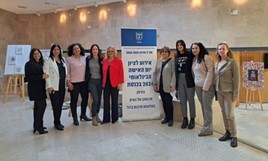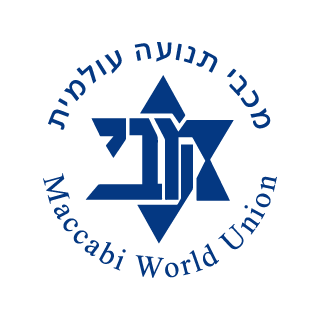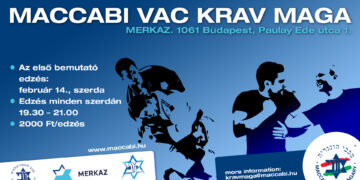Female leadership in Jewish national history: Queen Esther, Purim, and MWU Female Leaders

Dear Friends,
The International Women’s Day was held two weeks before we celebrate the joyous Festival of Purim. The incidental calendar link between the two events is entirely appropriate because at the center of Purim is the celebration of a woman, the legendary heroine Queen Esther, who saved the Children of Israel from genocide planned by the evil Haman.
The Bible recognizes many attributes and qualities of Esther. She combines “classic” and much-appreciated feminine attributes – great beauty, sensuality – with other qualities and virtues generally denied to women in ancient times: Esther was brave and intelligent, a genuinely sophisticated strategist who subtly persuades her husband King Achashverosh by transforming the actual danger his Grand Vizier Haman poses to their whole Persian Empire into a personal and intimate threat to the King himself.
In ancient societies and cultures, courage was generally associated exclusively with men. In the Biblical account, Esther is the person who places her own life in danger for her People, builds the plan of salvation, and implements it, at least during its first phase. Judaism’s recognition of her action is so large that the book of the Bible, which narrates the salvation of the Jews in the vast Persian Empire, bears her name, The Book of Esther, usually known as Megillat Esther (“The Scroll of Esther”), read in synagogues during Maariv and Shacharit prayers on Purim from manuscript scrolls that resemble actual Torah scrolls.
Today, when the Jewish people’s history develops having our epicenter as a people in Medinat, Israel, the Jewish State, Hamas’ murderous and brutal attack against women, men, toddlers, children, the elderly, civilians, and soldiers, on October 7, showed a new genocidal attempt to “free Palestine from the River to the Sea” – with perhaps more zeal than Haman at Esther’s story. The world testified the unbearable images of torture, abuse, and murder – with the additional token of hundreds of hostages… The sadism of Hamas towards the massacred victims and towards those who are still alive also included acts of brutal and targeted sexual terrorism against both sexes – but mainly against girls and women.
The Jewish historical courage of women also characterizes our Maccabi Movement, responding to these horrors. Since October 7, when more and more evidence has been collected describing the horrific sexual crimes committed against Israeli women, teenagers, and girls – Israelis and members of other nationalities, our MWU Women’s Forum, headed by MWU Deputy Chairperson Orly Froman, MWU Hon. Secretary Shirit Saks-Haim, MWU European Chair Desk Ronit Neaman and MWU Europe Desk Director Ilana Ben-Namerlaunched a campaign to become the voice of those who cannot speak on their behalf: the “MWU Speak UP” campaign, denouncing Hamas’ horrible war crimes against women – and organizing many activities worldwide to demand for justice. The terrorists documented their sadistic acts of evident sexual terrorism as one of their goals in their unspeakable pogrom – a blatant violation of international law and a crime against humanity. Our Maccabi female leaders denounced and still denounced those acts, with a steady campaign that reached the Knesset – the Israeli Parliament. They brought our Maccabi voice worldwide, joined by our extraordinary Maccabi female leaders in each of our Maccabi Territorial Organizations in all Continents – who are now heading their campaigns in their countries.
In an era in which Gender Studies are so popular in Western academia, it is appropriate to celebrate the millennium-old traditional recognition of women in our Jewish sources. It is not just that women have been important personalities in our foundational books, from the Matriarchs (Sarah, Rivkah, Rachel, and Leah) to Miriam in the Torah or Yael and Hannah in the Books of the Prophets. It is much more “revolutionary” when qualities typically attributed to male personalities are also recognized in women leaders, such as courage and strategic thinking. We know well the courage of Yehoshua, Shimshon, and King David, as well as the analytical thinking and leadership of Moshe, Shlomo, and Ezra. The Bible reminds us that even 2,500 years ago, our People also venerated people like warrior priestess Devorah, the Prophetess Chuldah, and, of course, our heroine, the central figure in the happiest celebration in the Hebrew Calendar, Esther. All of them are inspirational figures for our Maccabi female leadership – and for all of us in the Jewish people.
May God inspire us in this Purim to feel closer to the Land and the State of Israel – central to our creativity, our collective identity, and our life as a People.
May God grant us Purim’s message of life,
hope and salvation to encourage us to celebrate together,
evoking the feelings and emotions that led us to our present glory.
May God will that each and every one of us hear the story of Esther, Mordechai, and their redemptive history and adopt it as our own.
With best wishes,
Chag Purim Sameach!
Chazak ve’ematz!
Rabbi Carlos A. Tapiero
Deputy CEO & Director of Education
Maccabi World Union















